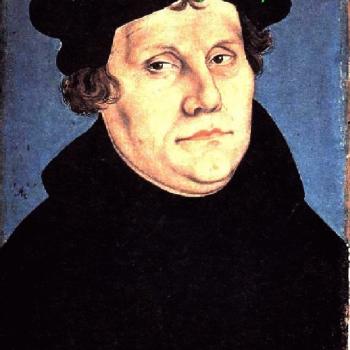Benediction
As we prepare to leave this place, I would like to share with you a benediction that has been traditionally called the "Franciscan Blessing" -- from the order founded by St. Francis of Assisi. Listen, in particular, for a word or phrase that may stands out to you or deeply resonate with you:
May God bless you with discomfort at easy answers, half truths and superficial relationships, that you may live deep within your heart. May God bless you with anger at injustice, oppression and exploitation of people, that you may work for justice, freedom and peace. May God bless you with tears to shed for those who suffer from pain, rejection, starvation, and war, that you may reach out your hand to comfort them and turn their pain to joy. May God bless you with enough foolishness to believe that you can make a difference in this world, that you may do what others claim cannot be done.
I invite you to listen to these words a second time. And, later today, I invite you to ponder the word or phrase that stood out to you. Be open to how God may be calling you.
May God bless you with discomfort at easy answers, half truths and superficial relationships, that you may live deep within your heart. May God bless you with anger at injustice, oppression and exploitation of people, that you may work for justice, freedom and peace. May God bless you with tears to shed for those who suffer from pain, rejection, starvation, and war, that you may reach out your hand to comfort them and turn their pain to joy. May God bless you with enough foolishness to believe that you can make a difference in this world, that you may do what others claim cannot be done.
(The descriptions of the books below are excerpted from published reviews)
On "Pluralism"
Paul F. Knitter, Introducing Theologies of Religions (2002).
His alternative title clarifies the content of the book: "Christianity and Other Religions: Problems and Promise." A related book of note is his latest book, which will be released at the end of July 2009: Without Buddha I Could Not Be A Christian.
On "Progressivism"
Marcus J. Borg, The Heart of Christianity: Rediscovering a Life of Faith (2004).
Christianity appears to be at a crossroads, and religious historian Borg draws a distinction between what he calls an emerging paradigm and an earlier paradigm. The distinction is important because Christianity, he says, still makes sense and is the most viable religious option for millions. He contends the earlier paradigm, based upon a punitive God and believing in Christianity now for the sake of salvation later, simply doesn't work for many people. It also doesn't take into account the sacramental nature of religious belief; that is, religion as a vessel wherein the sacred comes to the faithful. Borg's emerging paradigm is based upon the belief that one must be transformed in one's own lifetime, that salvation means one is healed and made whole with God. He feels the new paradigm allows more people to be and become Christians. In his compelling proposal Borg consistently aligns the emerging paradigm with God, Jesus, the Bible, tradition, and religious practice, which constitute the heart of Christianity.
Sallie McFague, A New Climate for Theology: God, the World, and Global Warming (2008).
Sallie McFague has brought the fruit of decades of thinking about God and the world, about individual and community, about humanity and nature, about reality and metaphor, about the sacramental and the prophetic, to bear on the critical issue of climate change. She calls Christians to new feeling, new acting, and new thinking. A New Climate for Theology not only traces the distorted notion of unlimited desire that fuels our market system; it also paints an alternative idea of what being human means and what a just and sustainable economy might mean. Convincing, specific, and wise, McFague argues for an alternative economic order and for our relational identity as part of an unfolding universe that expresses divine love and human freedom. It is a view that can inspire real change, an altered lifestyle, and a form of Christian discipleship and desire appropriate to who we really are.
Walter Wink, The Powers That Be: Theology for a New Millennium (1999).




